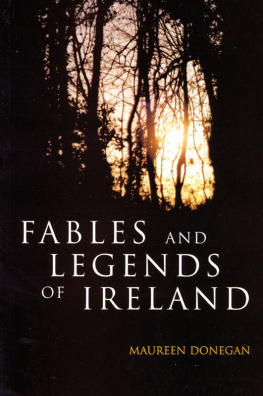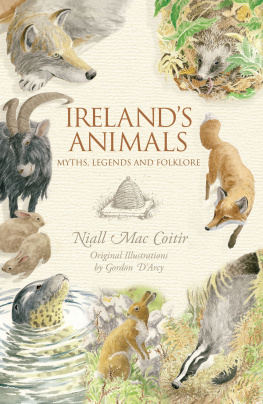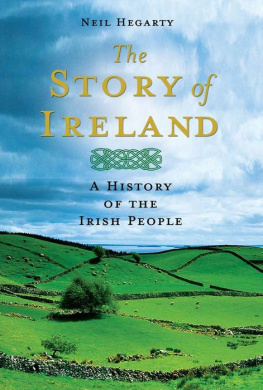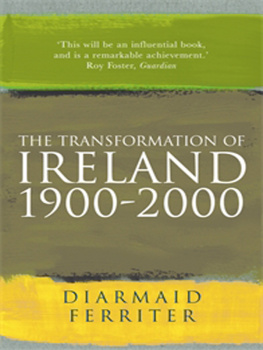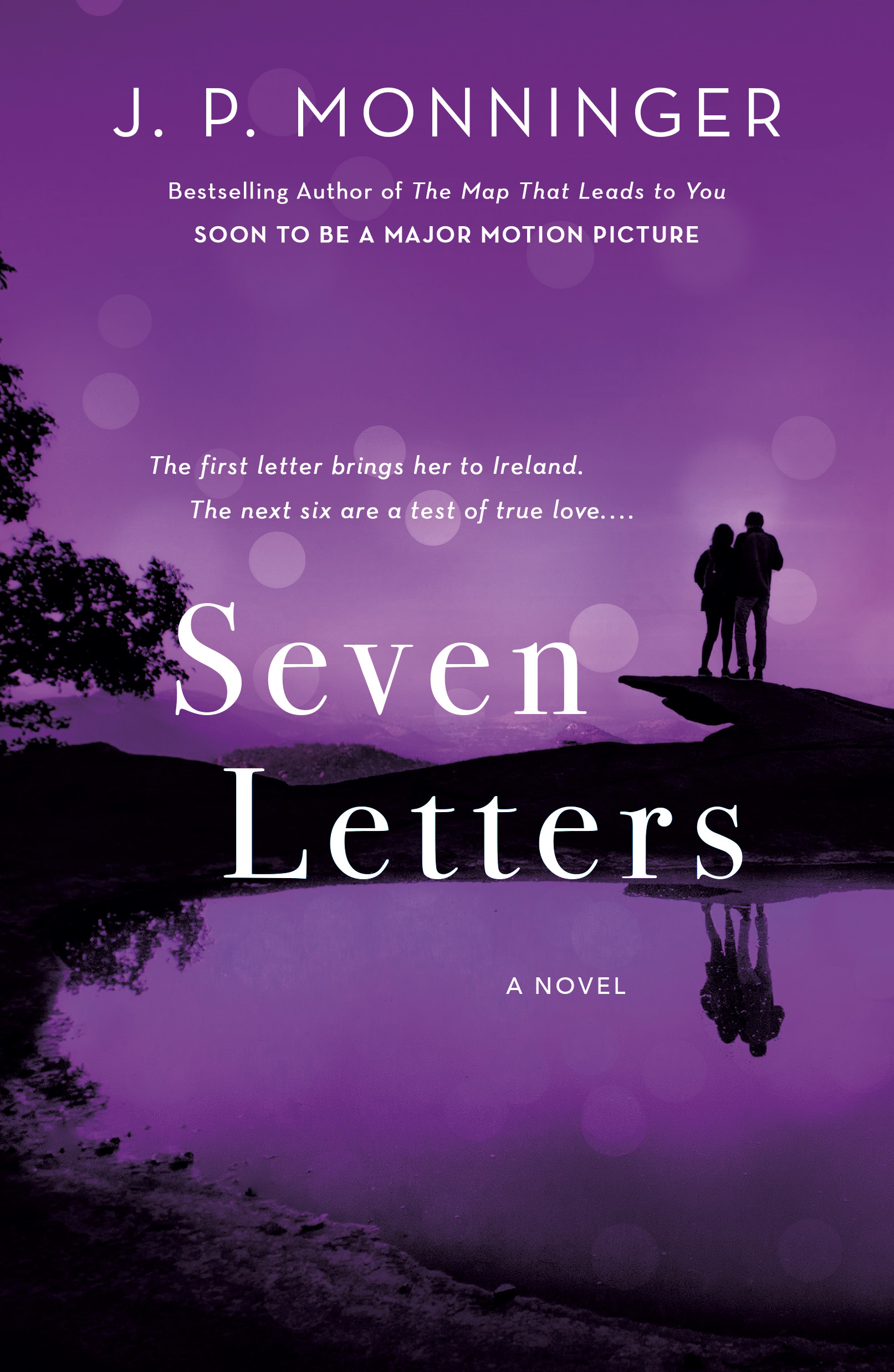Contents
Guide
Pagebreaks of the print version
The author and publisher have provided this e-book to you for your personal use only. You may not make this e-book publicly available in any way. Copyright infringement is against the law. If you believe the copy of this e-book you are reading infringes on the authors copyright, please notify the publisher at: us.macmillanusa.com/piracy.
To Susan, who lives by the brook
The sunlight has never heard of trees.
A. R. AMMONS
Life is tough, my darling, but so are you.
ANONYMOUS
The Irish tell a story of a man who fell in love with a fairy woman and went with her to live on an island lost to time and trouble. They lived in a thatched cottage overlooking the sea with nothing but donkeys and gulls and white chickens to keep them company. They lived in the dream of all lovers, apart from the world, entire to themselves, their bed an island to be rediscovered each night. In all seasons, they slept near a large round window and the ocean wind found them and played gently with their hair and carried the scent of open water to their nostrils. Each night he tucked himself around her and she, in turn, moved closer into his arms, and the seals sang and their songs fell to the bottom of the sea where the shells held their voices and relinquished them only in violent storms.
One day the man went away, mortal as he was; he could not resist his longing to see the loved ones he had left behind. She warned him that he would grow old the moment his foot touched the soil of the Irish mainland, so he begged her for one of the donkeys to ride back to his home for a single glance at what he had left behind. Though she knew the risk, she loved him too much to deny his wish, and so he left on a quiet night, his promise to come back to her cutting her ears with salt and bitterness. She watched him depart on a land bridge that arced to the mainland and then turned back to her cottage, knowing his fate, knowing that love must always have its own island. She raised up the fog from the ocean and she extinguished all light from the island and the chickens went mute and the donkeys brayed into the chimney smoke and the gulls called out her anguish.
After many days of travel, and through no fault of his own, he touched ground and became an old man in one breath. Even as age claimed him upon the instant of his foot striking the soil, he called to her to save him, but she could not help him any longer. In the seasons afterward, on certain full moon nights, she permitted the island to rise from the mist and to appear to him, or to any broken-hearted lover, the boil of the sea stilled for an unbearable glimpse of what had been lost so thoughtlessly. To his great age he lived for the moments when he might hear her voice rising above the sea, the call of their bed and their nights and their love, the call of his heart, the call of the gulls that held all the pain of the world. He answered on each occasion that he was here, waiting, his heart true and never wavering, his days filled with regret for breaking their spell and leaving the island. He asked her to forgive him the restlessness, which is the curse of men and the blood they cannot still, but whether she did or not, he could not say.
To: Dr. Fowler/Dissertation committee
From: Kate Moreton
Subject: teaching release, spring semester
Dear Dr. Fowler:
As we discussed, I am taking leave of my teaching responsibilities for the spring semester, 2019. Dean Howell has already given her permission and the attendant paperwork is attached. Please feel free to contact me with any questions.
I am using the Brady Milsap Scholarship moniesawarded by the Dartmouth Alumni Associationto fund a research trip to Ireland, and, specifically, to the Blasket Islands off the southwest coast of Ireland. My dissertation, as you know better than anyone else, centers on the narratives of the Blasket Islanders and their emigration from the Blaskets to the United States. I hope to gather as many narratives as I can, including all those already published, and compile the definitive anthology and bibliography of oral accounts of the islanders relocation to the Springfield/Chicopee areas of Massachusetts. As you know from my proposal, the island is now abandoned except for a tourist cafeteria to handle summer visitors who come to explore the remnants of the original village. The Irish Land Commission ordered the island vacated, and by 1953, this community of twenty-two people and their furniture were transferred over the sound to four newly built cottages at Dunquin with three acres of arable land attached.
To the extent that it is possible, I hope to compare and contrast the narratives of those former Irish citizens who, in the middle of the twentieth century, found themselves living in a new land in America. Its an ambitious project, and I could not have undertaken it without your endorsement. I will be housed, for at least part of my time in Ireland, at the University of Limerick.
The citizens of the Blasket Islands represent, to many linguists, the purest, and oldest, Irish language constructions. My travel will inform my research and I cannot imagine finishing my dissertation without having this experience. I regret leaving the classroom, but I am energized by the scholarship that awaits me. I grew up in the Springfield/Chicopee region of Massachusetts, and I have long been fascinated by this population. It has been a lifelong dream to travel to Ireland to further my research and interest. It is a part of my heritage.
Thanks to you and the members of the dissertation committee for encouraging me in this regard. I appreciate the letters of recommendation committee members sent on my behalf to the Brady Milsap Alumni Scholarship Fund. I am confident my research will prove invaluable in fleshing out my dissertation and will, perhaps, make a small contribution to our understanding of the Blasket Island populations.
Respectfully submitted,
Kate Moreton
I had misgivings: it was a tourist bus. As much as I didnt want to admit it, I had booked passage on a tourist bus. It wasnt even a good kind of tourist bus, if there is such a thing. It was a massive, absurd mountain of a machine, blue and white, with a front grill the size of a baseball backstop. When the tour directora competent, harried woman named Rosiepointed me toward it with the corner of her clipboard, I tried to imagine there was some mistake. The idea that the place I had studied for years, the Blasket Islands off Irelands southwest coast, could be approached by such a vehicle, seemed sacrilegious. The fierce Irish women in my dissertation would not have known what to say about a bus with televisions, tinted windows, air-conditioning, bathrooms, and a soundtrack playing a loop of sentimental Irish music featuring Galway Bay and Danny Boy. Especially Danny Boy. It was like driving through the Louvre on a motor scooter. It didnt even seem possible that the bus could fit the small, twisty roads of Dingle.
I took a deep breath and climbed aboard. My backpack whacked against the door.
Immediately I experienced that bus moment. Anyone who has ever taken a bus has experienced it. You step up and look around and you are searching for seats, but most of them are taken, and the bus is somewhat dimmer than the outside light, and the seat backs cover almost everything except the eyes and foreheads of the seated passengers. Most of them try to avoid your eyes because they dont want you sitting next to them, but they are aware, also, that there are only so many seats, so if they are going to surrender the place next to them they would prefer it be to someone who looks at least marginally sane. Meanwhile, I tried to see over the seat backs to vacant places, also assessing who might be a decent, more or less silent traveling companion, while also determining who seemed too eager to have me beside her or him. I wanted to avoid that person at all costs.


